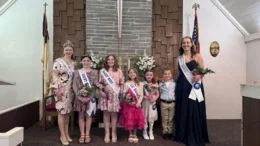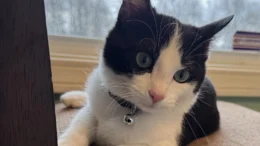It’s an olive branch of unknown consequences.
Pennsylvania Game Commissioners exempted senior lifetime license holders – some of them, anyway – from having to buy a pheasant permit before chasing stocked birds. The change applies to all those who had their lifetime license prior to May 13, 2017.
Those who purchased theirs afterward will need a permit.
“So as the new ones come on, they know what the deal is,” said commission executive director Bryan Burhans.
The rule goes into effect for this fall.
What the immediate impact might be, only time will tell.
Last year, in an attempt to fund the propagation program, commissioners created a $25 pheasant permit. It was required of all adult hunters pursuing stocked birds.
That included senior lifetime license holders.
Many willingly bought permits and say they will continue to do so, said commission executive director Bryan Burhans.
“We actually have a lot of support from our senior lifetime license holders because they see the value of the program,” Burhans said.
But others ran to their state lawmakers to cry foul. The result is legislation in the works right now – House Bill 1409 — that would exempt them.
The commission hasn’t opposed that bill. It even considered just letting it run its course, said commissioner Brian Hoover.
But in the end, commissioners decided to preempt it and put the new rule in effect themselves, said board president Tim Layton of Somerset County. It’s a goodwill gesture of sorts, he said.
“The money we’re going to lose compared to what we’re going to gain, it just makes sense for us to do this,” Layton said.
It’s also a case of facing political reality, suggested commissioner Jim Daley of Butler County.
“I think we’ve just come to the point where the dollars that we’re talking about by selling them is probably not worth the grief that we get from people having to buy them,” Daley said.
What the impact will be on participation remains unclear.
The commission sold 42,038 pheasant permits last year, raising a little more than $1 million. Senior lifetime license holders accounted for about 10 percent of both sales and revenue.
Pennsylvania has 120,287 senior lifetime license holders, though. Just about 4 percent bought a pheasant permit last year.
No one knows how many of the other 96 percent may come back, or what that might mean.
That was the concern voiced initially by commissioners, that there are a lot of senior lifetime license holders, and many have the time to frequently pursue bids.
“You know, it’s hard to tell what to expect,” Layton said. “We just think the fair thing to do is offer them something at no charge.”
In the meantime, all pheasant hunters will notice one change this fall.
The pheasant program is an expensive one, said Bob Boyd, who heads up the propagation division.
So cost was a point of emphasis.
As recently as fall 2016, it cost the agency about $4.7 million to raise and stock birds. Last year – after closed two pheasant farms and gone to buying day-old chicks – that cost dropped. It’s about $2.3 million currently.
Now, it’s the birds themselves under scrutiny.
Specifically, this fall, for the first time, the commission is trying to do a better job of giving hunters more of the kind of birds they want.
Traditionally, hunters prefer to shoot colorful male ringnecks over hens, Boyd said. But when the commission raised its own birds, it produced them at a ratio of 50-50 males to females.
“With the chuck purchase we now have some ability to affect the sex ratio of the birds that we put out,” he said.
The commission hopes to release 220,000 pheasants this fall. That’s up from 170,000 last year.
And it all goes well, 75 percent of them will be roosters.
“So we’ll see how it goes with the production of that. Assuming that they’ll have an equal survival rate by the time we get them through brooding and hatching to release, we should have that same sex ratio for the hunting season,” Boyd said.
“And that’s a big improvement.”
Bob Frye is the Everybody Adventures editor. Reach him at (412) 216-0193 or bfrye@535mediallc.com. See other stories, blogs, videos and more at everybodyadventures.com.








































